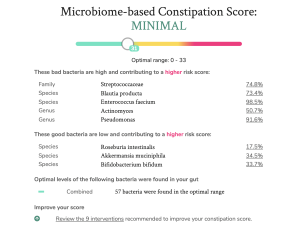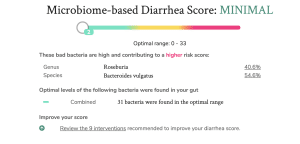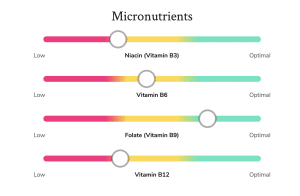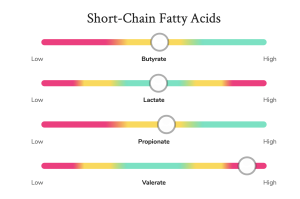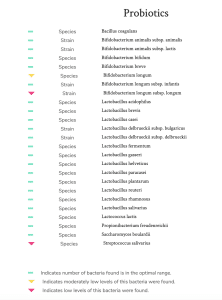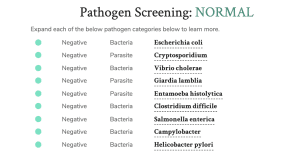You’ve heard us talk about the importance of a healthy gut for a long time. And, we’re not the only ones talking about it. Research shows that many areas are linked to intestinal health. Depression. Anxiety. IBS. Energy levels. Immune function. And so many others. The human microbiome is so complex. And it interacts with so many of our body’s systems. It’s important to have a good understanding of your own gut so you can make educated decisions. Like when you’re deciding which probiotic is right for you, what type of diet to follow, and more.
Watch our videos here on how to rebuild gut health for superior health.
Inflammation
Inflammation of the gut is a very common issue. Inflammatory Bowel Disease (IBD) is a result of inflammation. And this can cause pain, gas, diarrhea, and constipation. This test looks at more than 100 inflammation-associated bacterial species to determine your inflammation score. The lower the score, the less likely you are to have inflammatory gut diseases.
Constipation
Everyone struggles with constipation from time to time. But did you know that your bacterial species have a correlation with constipation? If you want some tips for how to handle your constipation issues in a natural way, check out this podcast.
Diarrhea
Increased levels of certain bacterial species are known to be protective against the development of diarrhea. And increased levels of other bacterial species are known to contribute to diarrhea. In the absence of other influences, such as infection, food intolerance, and medication use, the balance of these bacterial species can be a major driver of diarrhea-risk originating from your gut.
Gut Diversity
Micronutrients
Short-Chain Fatty Acids
These fatty acids are produced by many microbes in the gut. They act as an energy source and help our metabolism. They also act as a signaling molecule in the nervous system, help prevent the absorption of toxins, and increase nutrient circulation. And, they are vital for maintaining a healthy pH in our gut and stimulating the growth of beneficial bacteria.
Probiotics
As you know, we only carry the good stuff. So, shop for your probiotics here!
Pathogens
These are bacteria, viruses, and parasites that can cause disease. Most of the bacteria in your gut are not pathogens. But that’s where having a high amount of healthy, friendly bacteria will come in handy. They work together to fight off invaders.
Ready to Get Your Gut Health Test Results?
If you’re interested in getting this test done for yourself, use promo code HOLISTIC20 to save $20 on your test!
Want to Learn More about Gut Health?
Schedule a wellness consultation now. We can consult with you online!
We also offer the convenience of online shopping. Products can be shipped directly to your home.



